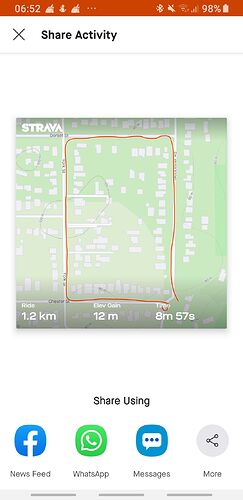Seems like, behind every good forum thread, there’s a crisis. I am sorry we didn’t provide the support the OP was looking for, but a lot of cool insights were shared.
Nice to see you back on the forum, OTM. I am unable to find an old thread regarding when we know we’re no longer a beginner. I wanted to add the following: I was a beginner when my riding was glitchy, and I was no longer a beginner when I could pretend to be glitchy.
I personally learned more about unicycling, as a novice, from riding out of the seat than I did from attempting to keep my weight in the seat. For example, standing up out of the seat accelerated placing one hand on the handle. Once I kept contact with one hand, then two, it was much easier to control weight in the saddle. So, the goal of weight-in-the-saddle was met, but not in a straightforward fashion.
I think problems can happen when beginners try to perfect their riding style with only a limited number of skills, for example, by focusing on smooth riding before moving onto other stuff. If you start with a larger wheel / shorter cranks, your success riding distance relies on a smooth approach, or else you fall off. I personally think a trials uni (small wheel / long cranks) is a good fit for a beginner. It may be twitchy as hell, but that, IMHO, accelerates the learning by giving more obvious feedback and by promoting the lower-body skills of guiding the unicycle under us.
A lot of riders on this forum are computer programmers. Maybe the connections are indirect; programmers are weird people, they frequently have leisure time, money to spend on toys. Or maybe computer programmers like challenges and are thus attracted to unicycling. The comments earlier in this thread seemed to suggest that being a computer programmer was a hinderence, rather than a help.
I was talking to a very smart friend about creative problem solving. He introduced me to the concept of “scoping”. In its simplest form, there are two forms of thinking: “Focused” and “diffuse”. Switching between those two states appropriately is a challenge. “Scoping” means we adjust the scope, between diffuse and focused thought, when approaching a problem.
I think both good programmers and good unicyclists must “scope”. The problem isn’t either thinking too hard (“analysis paralysis”) about something or not thinking about it at all (just “going for it”). Rather, it’s that we aren’t good at switching between those states, sometimes.
I have two competing visions of computer programmers. The first, when given a problem, puts his feet up on the desk and cracks open a soda and a bag of chips. The second programmer spends two seconds cracking their knuckles then starts typing at about 400 words per minute (they have 30 seconds to save the world).
I wonder if people who consider themselves to be above average in intelligence…are drawn to unicycling. And, if they believe they can learn faster by utilizing all the best learning techniques. And if that doesn’t sometimes backfire because their self-assured attitude blocks them from entering a “diffuse” state where they discover previously unknown aspects of the sport.
On the other hand, a rider who refuses to by analytical about their practice sessions…may not be able to distinguish between the relevant and irrelevant factors leading to their successes and failures, resulting in confusion, frustration, quitting.




